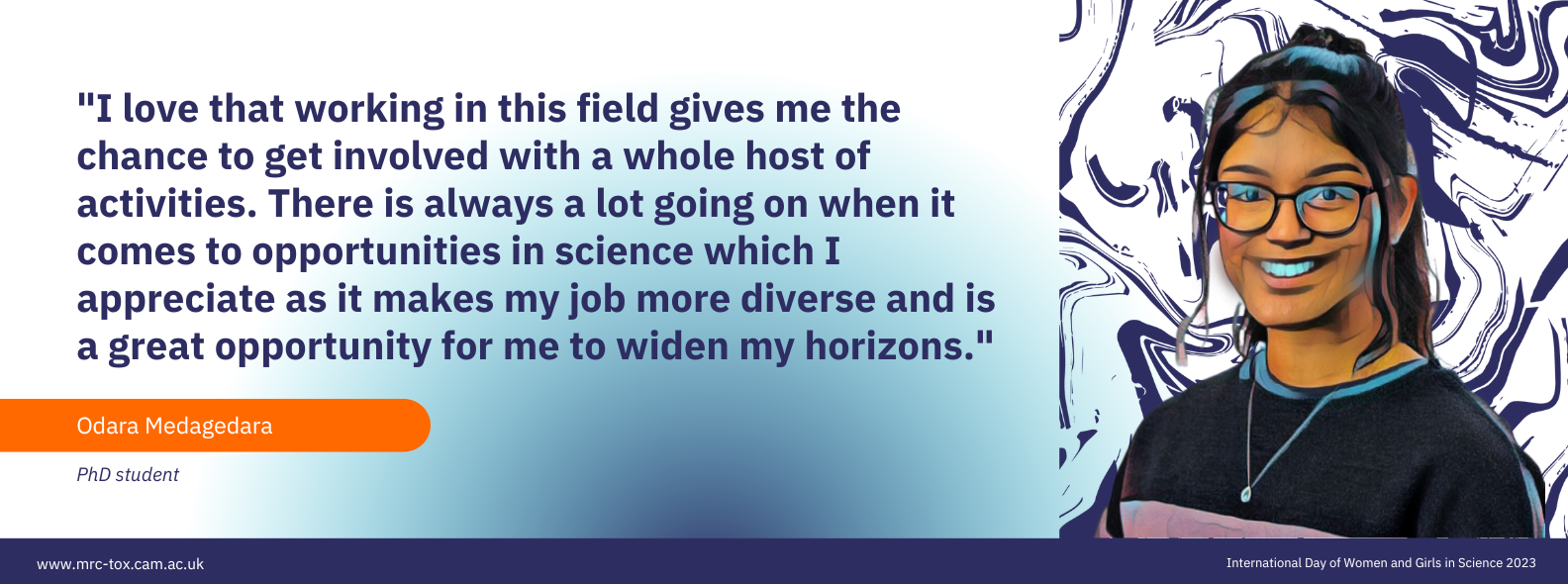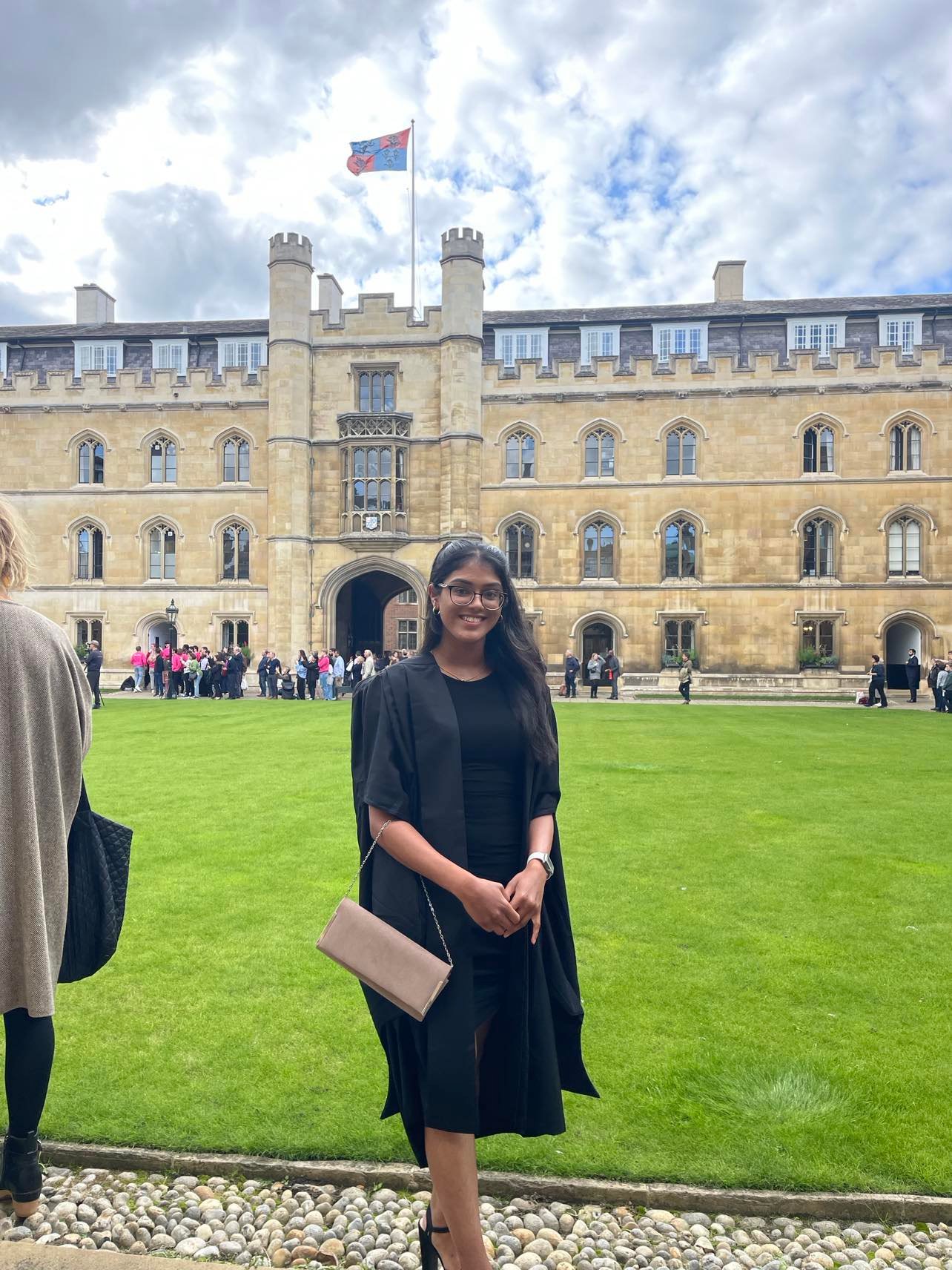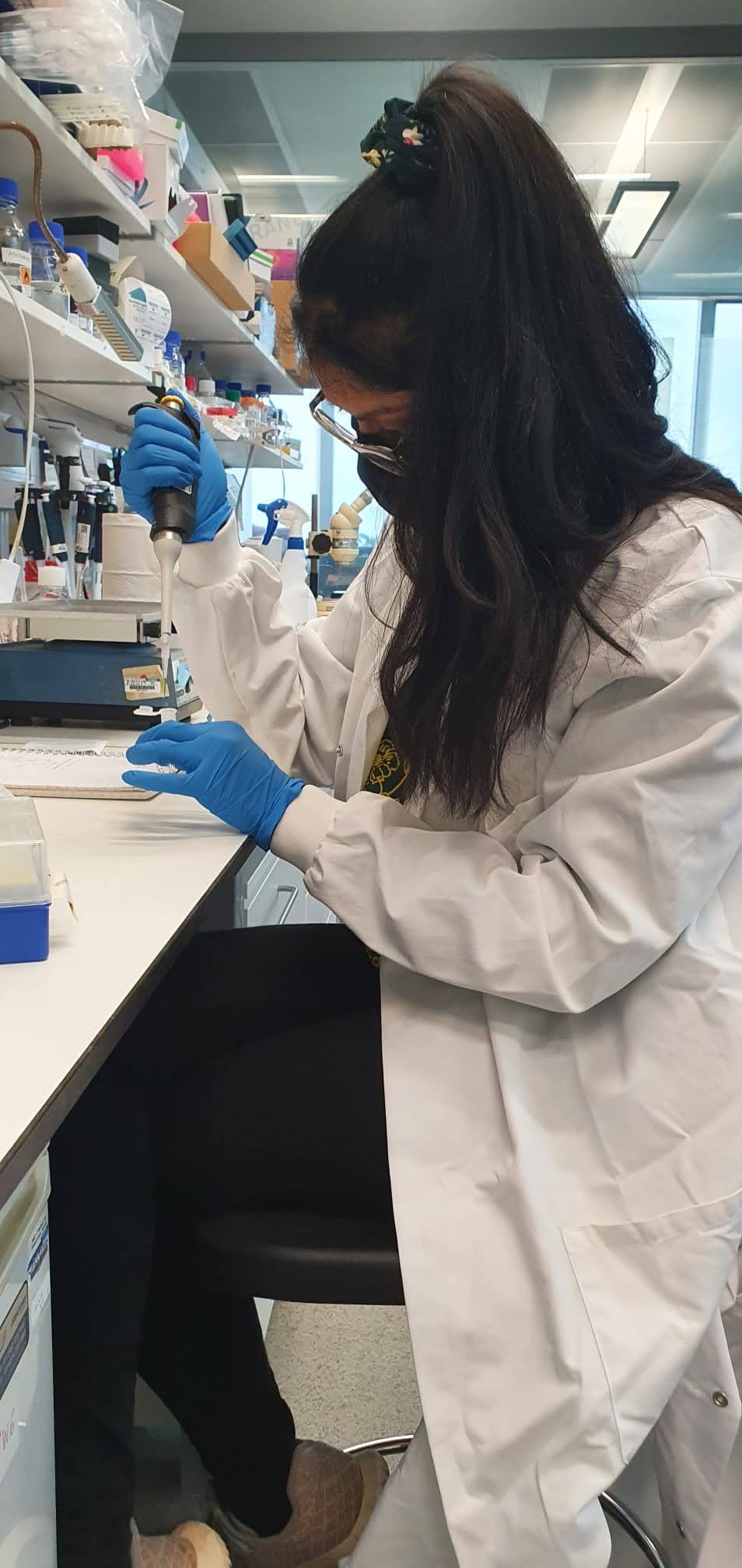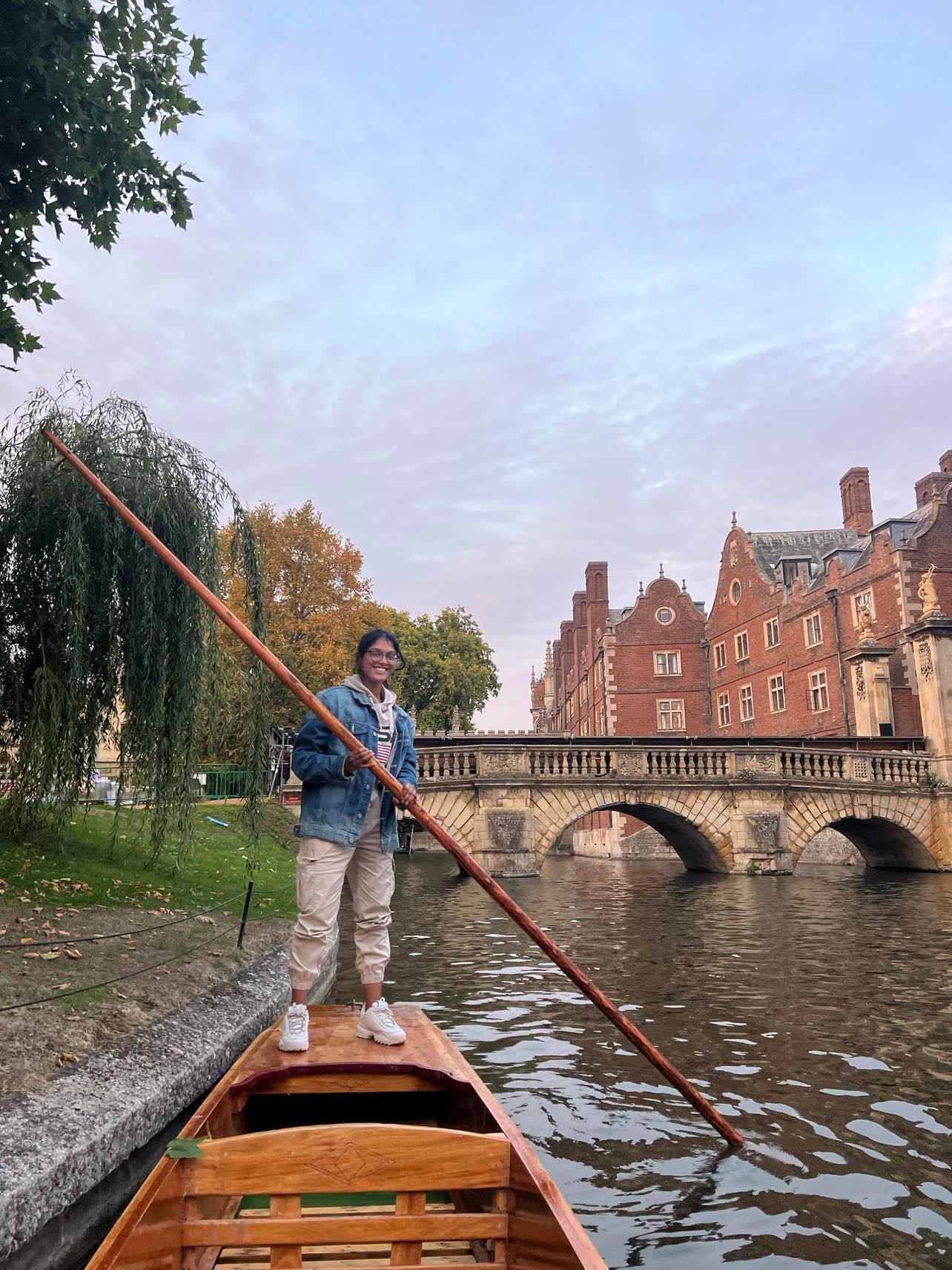To mark International Day of Women and Girls in Science 2023, we are sharing profiles of some of the women from the MRC Toxicology Unit highlighting their careers, experiences, passions and more. Today we want to introduce you to Odara.
Who are you and what is your role?
My name is Odara Medagedara and I am a first year PhD student in the Mennella Lab at the MRC Toxicology Unit. My research involves using volume electron microscopy to understand lung development and the adverse effects of various toxicants on this process.
What or who inspired you to pursue a career in science?
My science teachers in high school definitely played a big role in encouraging me to pursue a career in this field. They did a great job at making the subjects come to life, so the syllabus was engaging instead of being just a list of facts we had to learn. They always pushed me to fulfil my potential instead of just getting by with the bare minimum. I think that their encouragement and support enabled me to develop a good work ethic and enthusiasm for science which I have carried forward into my PhD.
What and when was the last experiment you did in the lab?
Since starting my PhD back in October 2022, I have been doing a lot of segmentation which is the way by which we can generate 3D reconstructions from imaging datasets. Among other things, this is a great way to characterise cellular architecture. Over this past week, I have been training a cohort of artificial intelligence models to segment various new datasets I have recently acquired. Alongside this, I have been learning how to culture lung organoids on which I will conduct experiments in the coming weeks.
What do you love most about research?
I love that working in this field gives me the chance to get involved with a whole host of activities, both as part of my degree and as extracurricular work. Throughout my undergraduate degree for instance, I was a part of several science communication and public engagement efforts which I thoroughly enjoyed. There is always a lot going on when it comes to extracurricular opportunities in science which I appreciate as it makes my job more diverse and is a great opportunity for me to widen my horizons. In terms of my degree, I find that, because of the range of techniques I regularly use, no two days are the same. This is something I really value because I enjoy mixing things up such that my time is split between programming / bioinformatics work and carrying out wet lab research.
Have you ever felt like you don’t belong in science?
I have been lucky enough not to face sexism in my line of work while I’ve been in the UK so I really feel I belong in this field. However, I know that others haven’t been so fortunate – if this is something you want to learn more about, I highly recommend the Picture A Scientist documentary on Netflix. I found it to be a really eye opening and moving depiction of the challenges women in science face.
What advice would you share with other women in science or girls interested in getting into science?
I love working in science and am so grateful to the opportunities this career offers. One reason why is because this line of work is incredibly fulfilling and gives me the chance to get involved with a range of things, from public engagement to programming to working in the lab. If a career in STEM is something you are considering, don’t let anything (including and especially yourself) stop you.





